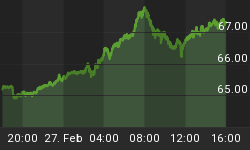The battle lines are being drawn in the Greek drama, and in increasingly-strident tones that will make retreat very difficult. This is one negotiating strategy: burn the bridges behind the army.
Here are some examples: the ECB's Christian Noyer "ruled out" a restructuring. "There's no solution possible" for Greece besides tightening its belt further in an austerity program. A default would make Greek sovereign bonds ineligible as collateral at the ECB, and according to Noyer they would become ineligible even if the country fails to meet the terms of the bailout. Since those terms appear to be impossible, this is a difficult situation.
It doesn't help that the ECB is already understood - if not widely understood - to already be an "Enormous Bad Bank." That's the assessment of Der Spiegel, who says the ECB is "exposed to everything that could go wrong in Europe." To some extent, a central bank is always exposed to bad things going wrong in its backyard, but Der Spiegel means exposed, as in "could need a bailout."
Meanwhile, in the UK some MPs have begun vigorously protesting the use of any UK money in bailouts for the Eurozone. MP Mark Reckless (his real name) said "...it is unaffordable for this country to bail-out countries who joined a currency we chose not to when we ourselves are borrowing as much money, if not more, than those very countries we are bailing out...it is not our problem; it is not our currency." It's hard to argue with that! Reckless was speaking on the motion requiring the Government to oppose further use of the EFSM unless the UK is excluded.
The lines are being drawn in Germany, in Finland, in the UK, in Greece, in Ireland, and in Portugal and Spain. If the IMF gets further involved (as surely it will) then lines will be drawn by U.S. legislators. These lines are all parallel, in the sense that they are not set up as tradeoffs but as ultimatums. One side cannot gain except by making the other side cross its line. Parallel lines do not intersect, as we know from geometry. And where are we most likely to find parallel lines in the modern world? It is when we're on a railroad heading inexorably towards our destination.
Nevertheless, Tuesday was a relatively sedate trading day. Equities consolidated yesterday's move lower, which is actually a bad sign in that the lower levels were not rejected by the price action. Commodities bounced, thanks in part to Goldman's declaration that it is turning "more bullish" on them. NYMEX Crude made a run at $100 but couldn't break back above that (increasingly irrelevant) milestone. Bonds were mostly unchanged.
The economic data didn't do much for the market. New Home Sales exceeded expectations at 323k, but this is both within the range of the last 6-8 months as well as below the lowest recorded rate in 2009. So it's not exactly time to cue the fanfare.
On the good-news front, Goldman also put out a research piece noting that state tax collections continue to be strong, up 12% year/year among those states that have reported April numbers. Goldman notes that a significant portion of the rise is from prior-year tax settlements but takes an overall cheerful view of this data. But I think it's important to realize that one of the main drivers of year-to-year changes in revenue is the level of the stock market (see Chart).

Federal tax receipts versus S&P index level, annual.
Higher equity prices result in more capital gains and more federal and state revenue. Given how much stocks have rallied (as well as bonds, commodities, and everything else) over the last couple of years, it would be really remarkable if revenues were not up quite considerably this year. The chart above is through 2010; a 12% gain looks about right.
What the bull giveth the bear may taketh away, however. If stocks go sideways, or heaven forbid lower, from here then tax receipts are going to stagnate. And our deficit projections do not incorporate 'possible revenue stagnation' as a potential outcome.
Note that I am not saying that revenues will fall if growth turns negative. I'm merely looking at the stock market, which is currently overvalued by many metrics. Federal revenues kept growing throughout recessions in the 1980s and the early 1990s, partly because nominal equity prices never experienced a major setback. It is also worth appreciating that this is a chart of nominal equity prices; although a rise in equity prices that merely accounts for a decline in the value of the currency isn't a real gain to the investor it is still taxed. In the recessions of the early 1980s and early 1990s, inflation was high enough (and stock prices low enough) that there was a natural following wind to equity prices and therefore some support for ever-growing Federal revenues. We don't live in that world any longer.
.
Wednesday's data includes April Durable Goods Orders (Consensus: -2.5%, +0.5% ex-transportation), expected to retrench a little after March's strength. The FHFA Home Price indices are out, and Minnesota Fed President Kocherlakota speaks on monetary policy around 1:30. The Fed speakers are also starting to draw their parallel lines, with some speakers advocating balance sheet unwinds while others demand increasing target rates first and still others think nothing needs to be done for a while. I have trouble reconciling this strong disagreement with Bernanke's utter certainty that the Fed will have no trouble pulling back the liquidity without any side effects, when it is necessary. That can only mean that there are lots of good options, because otherwise someone is wrong and that would imply that certainty is harder to come by than he says it is. But I have trouble seeing that there are lots of good ways to unwind these unprecedented Fed actions. I guess that's why I'm not a Fed official.















